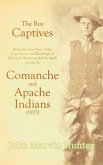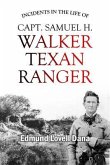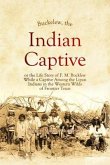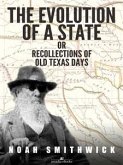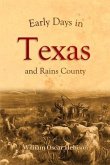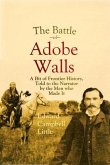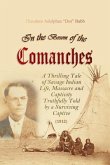"Aside from Greer's work, the most complete biography is 'Jack Hays, the Intrepid Texas Ranger,' a compilation edited by J. Marvin Hunter and published in a series in Frontier Times magazine in 1927...much of Hunter's material was taken from an unpublished manuscript...compiled by Hays' friend." -The Men Who Wear the Star: the Story of the Texas Rangers (2000)
"J. Marvin Hunter ... is devoted to the preservation of stories connected with the history of the southwest. For 25 years Hunter has been collecting data bearing on the history of Texas, New Mexico, Arizona, Oklahoma, Colorado, and Kansas...has interviewed veterans of Indian wars, old settlers, outlaws, stage drivers, stage robbers and other characters of the old west." -Idahoan Statesman, April 22, 1928
"Hays's unbridled bravery was of such notoriety...a plucky warrior confirmed: 'No afraid to go to hell by himself." -Texas Rangers: Lives, Legend, and Legacy (2017)
"John Coffee Hays...would shape the image of the early Texas Rangers." -The Texas Rangers: Wearing the Cinco Peso (2008)
"A life-size diorama in the Texas Ranger Hall of Fame at Waco...depicts Hays alone atop Enchanted Rock fighting off hordes of converging Comanches." -Texas Rangers: Lives, Legend, and Legacy (2017)
Why is John Coffee Hays considered the most famous Texas Ranger of the 19th century?
From February 1927 to May 1927 local historian John Marvin Hunter (1880-1957) serially published chapters of the book "Jack Hays, the Intrepid Texas Ranger," in the magazine Frontier Times, which were based on first-hand accounts of those who served with Hays in the Texas Rangers. It is this 1927 book of 130 pages that has been republished here in complete book form for the convenience of the interested reader.
John Coffee Hays (1817 - 1883) was a famous captain in the Texas Rangers and a military officer of the Republic of Texas. Hays served in several armed conflicts from 1836-1848, including against the Comanche people in Texas and during the Mexican-American War. Hays later joined the migration to California, leading a party of a party of Forty Niners from New York that traveled in wagons to California from Texas. Hays was elected sheriff of San Francisco County in 1850.
Hays emigrated in 1837 to San Antonio. Here he had several severe skirmishes with the Indians, and was engaged as surveyor on the frontier. In those times of peril, when Texas needed the assistance of every soldier, Hays could not long remain unnoticed. He was first created captain of a scouting party, and soon after superintendent of the entire border, with the rank of major. Desperate, and sometimes personal encounters with the Indians, soon spread his reputation, and before the commencement of our war with Mexico, he was regarded by the Indians as superior to common men-the bearer of a charmed life.
About the author JOHN MARVIN HUNTER (1880-1957):
As an amateur historian, Hunter published three historical magazines, Hunter's Magazine, Hunter's Frontier Magazine, and Frontier Times, which began respectively in 1910, 1916, and 1923. Using his newspaper presses, he reprinted a few works, including John Wesley Hardin's autobiography in 1925 and Andrew J. Sowell's Life of "Big Foot" Wallace in 1927. Hunter wrote several books and pamphlets, including Pioneer History of Bandera County (1922), The Bloody Trail in Texas (1931), Old Camp Verde, the Home of the Camels (1939), Cooking Recipes of the Pioneers (1948), Peregrinations of a Pioneer Printer (1954), his autobiography, and The Story of Lottie Deno (1959). In addition he edited The Trail Drivers of Texas (1920) and coauthored the Album of Gunfighters (1951). In 1927 he founded the Frontier Times Museum.
"J. Marvin Hunter ... is devoted to the preservation of stories connected with the history of the southwest. For 25 years Hunter has been collecting data bearing on the history of Texas, New Mexico, Arizona, Oklahoma, Colorado, and Kansas...has interviewed veterans of Indian wars, old settlers, outlaws, stage drivers, stage robbers and other characters of the old west." -Idahoan Statesman, April 22, 1928
"Hays's unbridled bravery was of such notoriety...a plucky warrior confirmed: 'No afraid to go to hell by himself." -Texas Rangers: Lives, Legend, and Legacy (2017)
"John Coffee Hays...would shape the image of the early Texas Rangers." -The Texas Rangers: Wearing the Cinco Peso (2008)
"A life-size diorama in the Texas Ranger Hall of Fame at Waco...depicts Hays alone atop Enchanted Rock fighting off hordes of converging Comanches." -Texas Rangers: Lives, Legend, and Legacy (2017)
Why is John Coffee Hays considered the most famous Texas Ranger of the 19th century?
From February 1927 to May 1927 local historian John Marvin Hunter (1880-1957) serially published chapters of the book "Jack Hays, the Intrepid Texas Ranger," in the magazine Frontier Times, which were based on first-hand accounts of those who served with Hays in the Texas Rangers. It is this 1927 book of 130 pages that has been republished here in complete book form for the convenience of the interested reader.
John Coffee Hays (1817 - 1883) was a famous captain in the Texas Rangers and a military officer of the Republic of Texas. Hays served in several armed conflicts from 1836-1848, including against the Comanche people in Texas and during the Mexican-American War. Hays later joined the migration to California, leading a party of a party of Forty Niners from New York that traveled in wagons to California from Texas. Hays was elected sheriff of San Francisco County in 1850.
Hays emigrated in 1837 to San Antonio. Here he had several severe skirmishes with the Indians, and was engaged as surveyor on the frontier. In those times of peril, when Texas needed the assistance of every soldier, Hays could not long remain unnoticed. He was first created captain of a scouting party, and soon after superintendent of the entire border, with the rank of major. Desperate, and sometimes personal encounters with the Indians, soon spread his reputation, and before the commencement of our war with Mexico, he was regarded by the Indians as superior to common men-the bearer of a charmed life.
About the author JOHN MARVIN HUNTER (1880-1957):
As an amateur historian, Hunter published three historical magazines, Hunter's Magazine, Hunter's Frontier Magazine, and Frontier Times, which began respectively in 1910, 1916, and 1923. Using his newspaper presses, he reprinted a few works, including John Wesley Hardin's autobiography in 1925 and Andrew J. Sowell's Life of "Big Foot" Wallace in 1927. Hunter wrote several books and pamphlets, including Pioneer History of Bandera County (1922), The Bloody Trail in Texas (1931), Old Camp Verde, the Home of the Camels (1939), Cooking Recipes of the Pioneers (1948), Peregrinations of a Pioneer Printer (1954), his autobiography, and The Story of Lottie Deno (1959). In addition he edited The Trail Drivers of Texas (1920) and coauthored the Album of Gunfighters (1951). In 1927 he founded the Frontier Times Museum.
Dieser Download kann aus rechtlichen Gründen nur mit Rechnungsadresse in A, D ausgeliefert werden.



